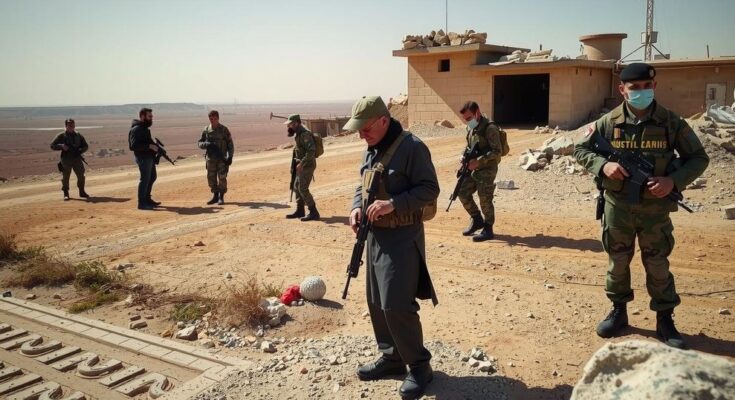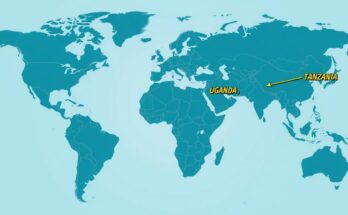Kurds in Syria are seeking substantive support from Israel amidst fears of renewed Turkish aggression. Following assurances made by Israeli officials for minority protection, many Kurds question whether these promises will translate into practical assistance, particularly through military support for the Syrian Democratic Forces (SDF) as they face significant threats from Turkish-backed militias.
On December 18, Israeli Foreign Minister Gideon Sa’ar met with Jens Plotner, the Foreign Policy and Security Advisor to the Federal Chancellor of Germany, emphasizing the necessity for the international community to protect minorities in Syria, particularly the Kurdish minority facing significant threats. Many Kurds in Syria express a desire for concrete assistance beyond mere verbal support from Israel, particularly amidst fears of a potential Turkish offensive targeting regions populated by Kurds, such as Kobani.
Historically, Kurdish communities have faced violence; for instance, in 2018, Turkish forces launched an aggressive attack on Afrin, displacing over 150,000 Kurds. The continuous threat from Turkish-backed militias raises concerns about further ethnic cleansing in regions including Afrin itself and areas near Aleppo. The Autonomous Administration of North and East Syria (AANES) and its military wing, the Syrian Democratic Forces (SDF), predominantly composed of Kurdish combatants, remain the primary local governance in these territories, having been established partly through United States support to combat ISIS.
Despite their successful campaign against ISIS, the SDF faces multi-faceted threats from Turkey, the Syrian National Army (SNA), and remnants of ISIS. Turkey perceives the SDF as an extension of the Kurdistan Workers Party (PKK), which it labels a terrorist organization. The Turkish government has leveraged extremist factions to conduct operations against the SDF, raising alarms among Kurdish residents who fear further aggression. Many Kurds are apprehensive about Israel’s intentions, questioning whether it will translate supportive remarks into real action, particularly through aerial support for the SDF.
The dire situation is exacerbated by the ongoing military actions, including airstrikes from Turkish drones and artillery fire from the SNA. Areas like Kobani, having previously rebuffed ISIS sieges, now face threats from the Turkish-led factions, leading the local populace to question the commitment of the global community to their safety. Amidst these circumstances, it becomes increasingly crucial for the Kurds to receive substantial backing—either through direct support from Israel or collaborative efforts facilitated by the United States-led coalition that assists the SDF.
The Kurds in Syria have historically endured violence and displacement. The rise of the Syrian Democratic Forces (SDF) marked a significant turning point, as they played a crucial role in the defeat of ISIS in the region, gaining international support. However, their existence is continually threatened by Turkey, which has labeled all Kurdish groups as terrorist affiliates. This precarious balance highlights the urgent need for external support, particularly from nations like Israel, as the Kurdish populations confront potential ethnic cleansing backed by Turkish proxies. Kurds seek tangible support from Israel amid escalating threats, pointing to a critical gap between diplomatic discussions and practical assistance.
In summary, the plight of Kurds in Syria necessitates immediate and concrete support from the international community, particularly Israel, which has expressed verbal solidarity but remains ambiguous about further actions. As Turkey continues its aggressive stance against Kurdish regions, the SDF serves as a crucial barrier against both Turkish encroachment and ISIS resurgence. The situation demands attention, with an urgent call for allies to translate their supportive rhetoric into actionable measures that address the urgent security concerns of the Kurdish population.
Original Source: www.jpost.com




